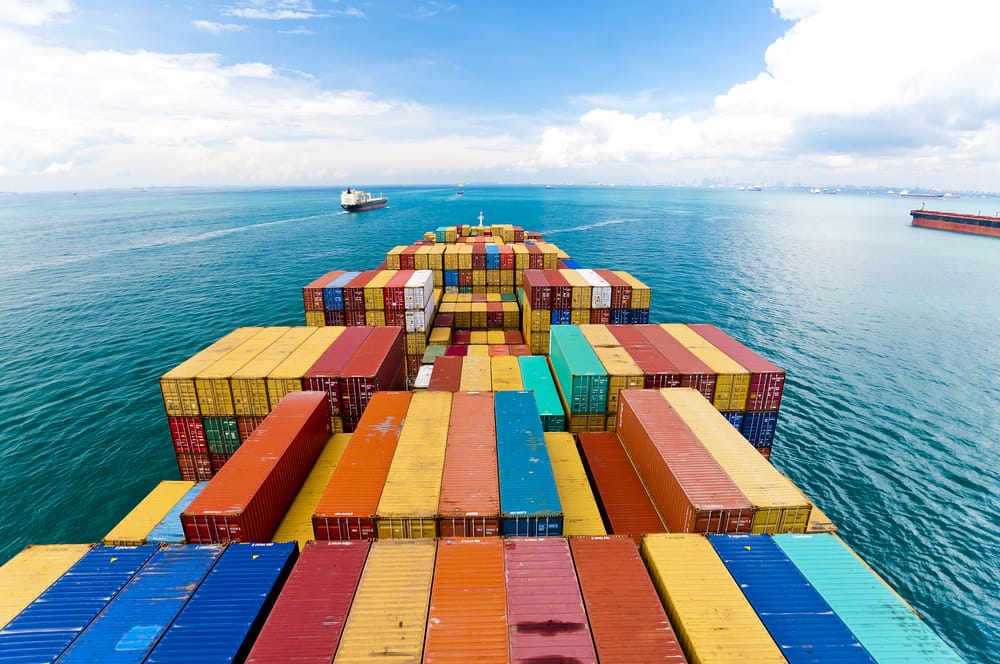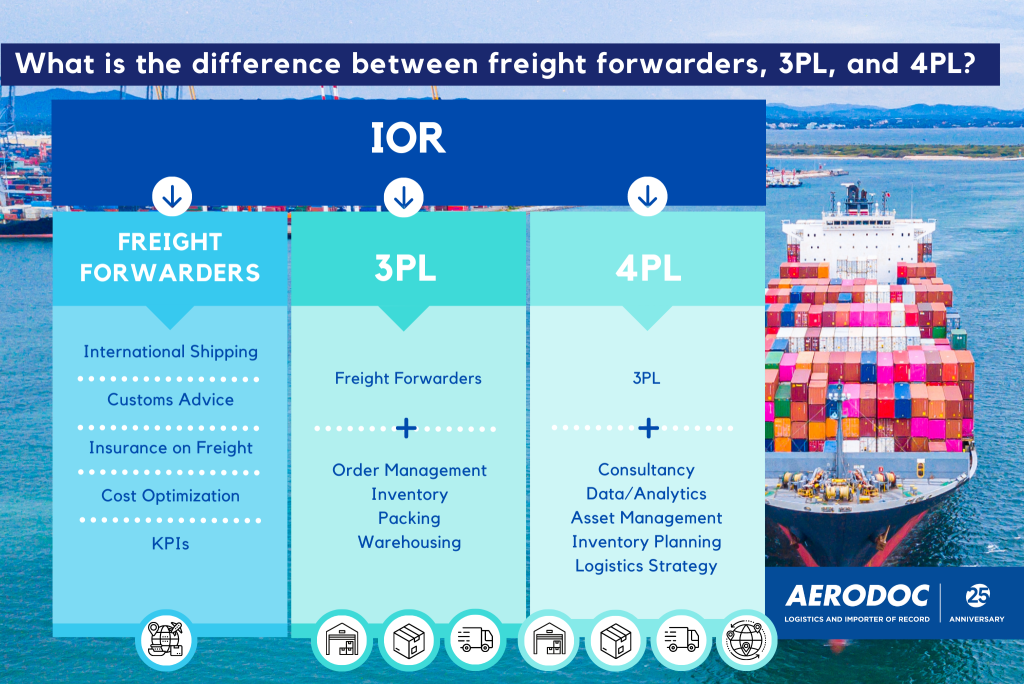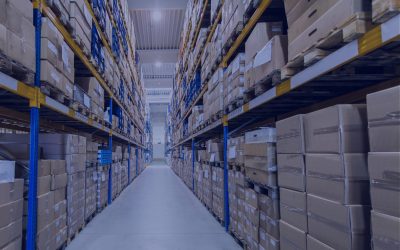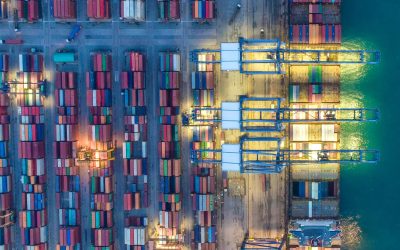Learn why this service is increasingly popular among companies expanding abroad.
In an increasingly digital world, where technologies are removing barriers and helping achieve what was previously unthinkable, international trade is still on the rise. According to data from the World Trade Organization, world trade volume today is roughly 45 times the level recorded in 1950, while world trade values today have ballooned by almost 400 times from 1950 levels.
However, technology and digitization are not solely responsible for this evolution. To ship merchandise from one country to another, companies use a group of operators that play a key role in that process, a role that is becoming increasingly relevant, considering global consumption trends. Nowadays, virtually every company that ships, buys, and sells goods abroad uses freight forwarding services.
Freight forwarding is essential for businesses navigating complex international supply chains, ensuring efficient movement of goods across borders. But what is freight forwarding exactly, and why is it so critical? This article dives deep into the concept, exploring its definitions, roles, and benefits to help you understand if it’s right for your operations.
What Is Freight Forwarding?
Freight forwarding refers to the coordination and shipment of goods from one place to another using various modes of transportation, such as air, sea, rail, or road. It acts as a bridge in global logistics, handling the intricacies of international shipping so businesses can focus on their core activities. What is freight forwarding in logistics? It’s the process of organizing shipments on behalf of shippers, often involving multiple carriers and regulatory compliance.
Many people search for “what is freight forwarding” to grasp its fundamentals. In essence, it’s a specialized service that optimizes the supply chain for cross-border trade, reducing costs and delays. For instance, in industries like e-commerce and manufacturing, freight forwarding ensures timely delivery while managing customs and documentation.
What Is a Freight Forwarder?
A freight forwarder is a company or individual that arranges the transportation of goods for shippers, acting as an intermediary between the shipper and various transportation services. But what is a freight forwarder in more detail? They are experts in logistics who negotiate rates, book cargo space, prepare shipping documents, and ensure compliance with international regulations.
Define freight forwarder: It’s an entity that doesn’t own the transportation assets but coordinates them effectively. Freight forwarders services include everything from route planning to risk management. If you’re wondering “what is a freight forwarder company,” it’s typically a specialized firm like Aerodoc that handles global shipments for clients in sectors such as IT and telecom.
Who are freight forwarders? They are professionals with deep knowledge of trade laws, often certified by organizations like the International Federation of Freight Forwarders Associations (FIATA). Whats a freight forwarder in simple terms? Think of them as the “travel agents” for cargo, booking the best routes and handling all the paperwork.
What Are Freight Forwarders and What Do They Do?
In simple terms, freight forwarders are organizations or companies providing transportation and logistics services for distributing merchandise internationally. They are not, however, shippers or distributors, but middlemen between the latter and customers. In other words, they provide intermediary logistics services, but on an international scale.
Regarding logistics providers, going from the most basic to the most comprehensive services they provide, the most basic one is simply shipping; if that shipping takes place from one country to another, that’s freight forwarding. Intra-country shipments are not handled by freight forwarders but by freight agents in each country.
That scale is very relevant to what freight forwarders do. Estefanía Sisatzky, EVP of OPS & Customer Service at Aerodoc, explains why: “Regarding logistics providers, going from the most basic to the most comprehensive services they provide, the most basic one is simply shipping; if that shipping takes place from one country to another, that’s freight forwarding. Intra-country shipments are not handled by freight forwarders but by freight agents in each country.”

What do freight forwarders do on a daily basis? They perform tasks such as customs advice, insurance on shipping, cost optimization, international shipping, Key Performance Indicators (KPI), and performance reporting. What does a freight forwarder do specifically? They consolidate shipments to save costs, track cargo in real-time, and resolve issues like delays or regulatory hurdles.
For businesses asking “what does freight forwarder do,” it’s about streamlining the entire export-import process. What freight forwarders do extends to advising on tariffs, packaging, and sustainable practices, making them indispensable for global expansion.
Freight Forwarding + IOR
A freight forwarder is not the same as an Importer of Record (IOR). According to Sisatzky, “95% of freight forwarders do not provide IOR services”, adding that “the vast majority of freight forwarding companies do not handle import processes.”
According to Aerodoc’s expert, both services are often offered separately, with very few companies providing – or executing – both: “Some may even offer both, but not through a single company, like Aerodoc does. We provide both FF and IOR, ensuring spotless logistics and imports in more than 160 countries. We work with industry leaders in the IT, broadcasting, satellite manufacturing and telecom verticals to distribute our customers’ gear and expand their global reach without the risks commonly associated with international distribution.
Aerodoc provides a single point of contact to provide end-to-end project coordination.
What is international freight forwarding? It’s freight forwarding focused on cross-border shipments, often incorporating IOR for seamless imports. International forwarding services handle duties, taxes, and compliance, reducing risks for exporters. For example, an import freight forwarder manages the entire process from origin to destination, including customs clearance.
Differences Between 3PL And 4PL
As was mentioned above, freight agents and freight forwarders provide the simplest logistical services. “Moving up the scale of complexity, you have 3PL, including warehousing and logistics, and 4PL, including additional value-added services,” Sisatzky says.
Both 3PL and 4PL are widely used in logistics. PL stands for Party Logistics and refers to the level of outsourcing required to provide the service – the higher the number, the more outsourced the service is. Therefore, 4PL providers outsource a bigger share of their services than their 3PL peers.

3PL operators can be a good match for companies that need to product warehousing, shipping, and delivery throughout a country, as they handle essential tasks such as order management, inventory, packing, warehousing and freight.
Companies that choose 3PL services can warehouse and deliver their products without the need to own a warehouse or have a dedicated in-house team to receive and deliver products.
To provide 3PL services, besides warehousing, shipping and delivering products, Aerodoc uses technology and a warehouse inventory management system that provides customers with the visibility they need over their stock levels, orders, and deliveries.
Unlike 3PL, 4PL operators do not manage physical logistics, which is usually outsourced to 3PL. In simple terms, 4PL act rather like consultants on logistics needs; they help identify which links of your supply chain may need changes – or working well – and provide advice, data/analytics, asset management, inventory planning, and logistics strategies.

Despite their differences, both 3PL and 4PL can be complemented with IOR for customers that require international services. Instead of a freight forwarder, you might need a more complex service like those; in that case, you will also need an IOR if you do not have legal representation in your product’s country of destination.
Logistic and freight forwarding often integrate with 3PL/4PL for comprehensive solutions. Forwarding freight services extend to value-added tasks like supply chain optimization, making them versatile for growing businesses.
Benefits of Using a Freight Forwarder
Why choose freight forwarding services? The advantages are numerous, especially for SMEs entering international markets. Freight forwarders offer cost savings through consolidated shipping, expertise in navigating trade agreements (e.g., USMCA or EU regulations), and risk mitigation via insurance and compliance checks.
For example, in the telecom industry, a freight forwarder can handle sensitive equipment shipments, ensuring they arrive undamaged and on time. Forwarding freight companies also provide real-time tracking, reducing uncertainty. What is global forwarding? It’s an extension of freight forwarding that emphasizes worldwide networks, ideal for multinational operations.
Businesses often ask, “Who is freight forwarder best suited for?” It’s ideal for importers/exporters without in-house logistics teams, helping avoid common pitfalls like customs delays or overpaid duties.
Common Challenges and How Freight Forwarders Help
International shipping faces hurdles like fluctuating fuel prices, geopolitical tensions, and regulatory changes. Freight forwarders mitigate these by offering alternative routes, contingency planning, and expert advice. For instance, during supply chain disruptions (e.g., post-COVID shortages), they reroute shipments efficiently.
Freight and forwarding also involves sustainability—many forwarders now prioritize eco-friendly options like low-emission carriers. This aligns with global trends toward green logistics, appealing to environmentally conscious clients.
Case Study: Aerodoc’s Freight Forwarding in Action
Consider a satellite manufacturing company expanding to Asia. Without a local presence, they faced import barriers. Aerodoc, as their freight forwarder and IOR, handled documentation, customs, and delivery, saving months and thousands in costs. This real-world example shows what freight forwarding services can achieve when combined with expertise.
If you would like to learn more about Aerodoc’s freight forwarding + IOR service, please contact our team.
Frequently Asked Questions About Freight Forwarding
What is a freight forwarding service?
It’s a comprehensive logistics solution for international shipments, including planning, documentation, and coordination.
What is international freight forwarding?
A specialized form focusing on cross-border trade, often including customs brokerage.
What is a frieght forwarder or freight fowarder?
Common misspellings for freight forwarder—an intermediary in international logistics.
What do freight forwarders do?
They negotiate shipping rates, book cargo space, provide customs brokerage, insure goods, track shipments, and offer performance reporting to ensure efficient global distribution.
Why might I need a freight forwarder?
If you’re expanding abroad without in-house logistics expertise, they help avoid delays, reduce costs, and mitigate risks like regulatory issues—especially in industries like IT or telecom.




